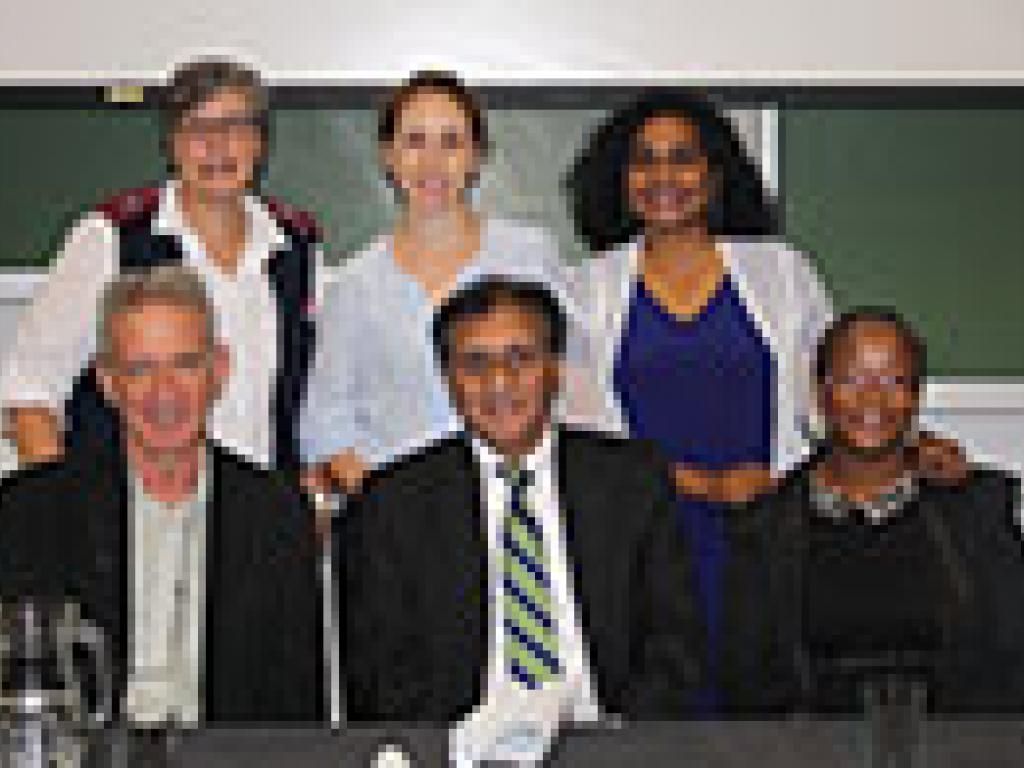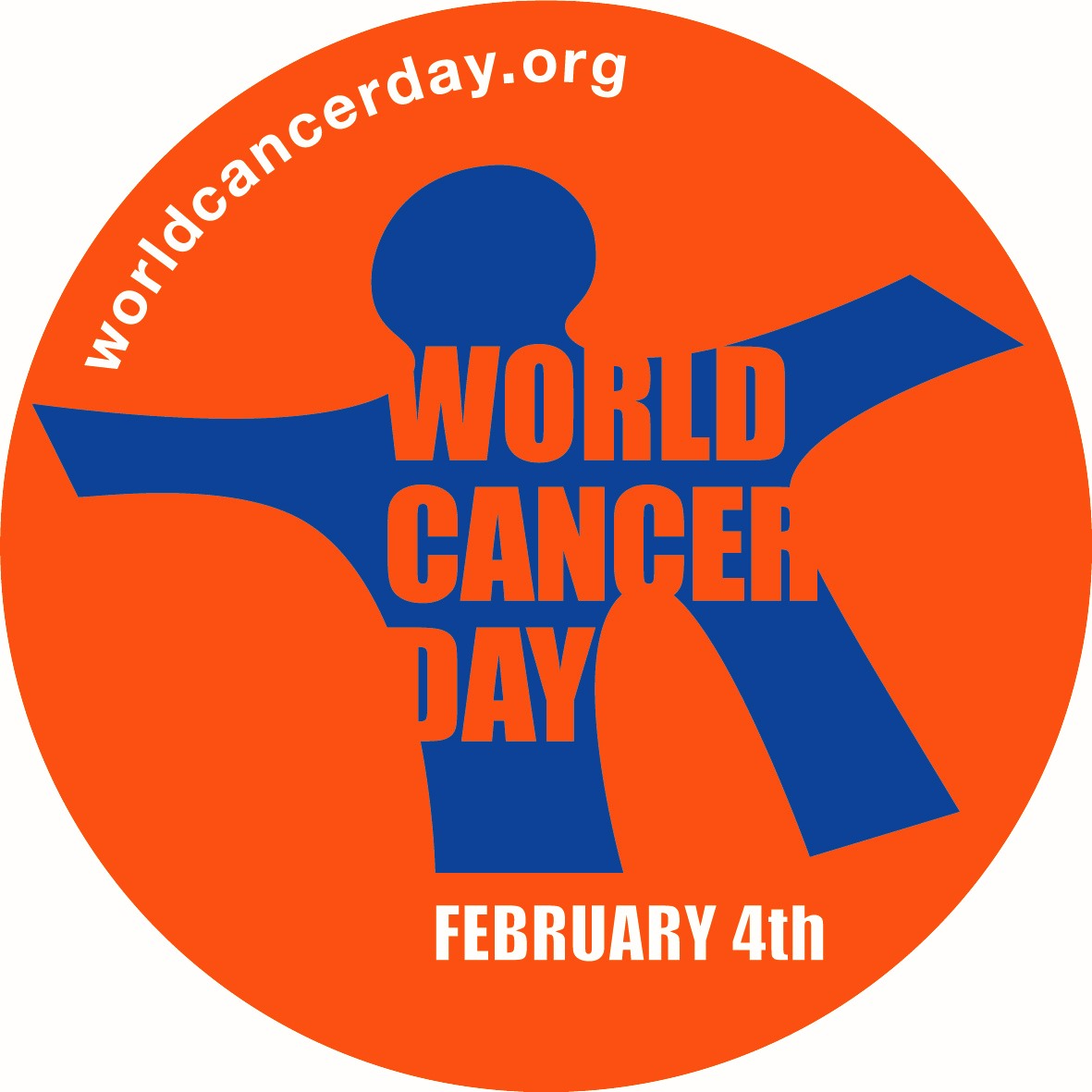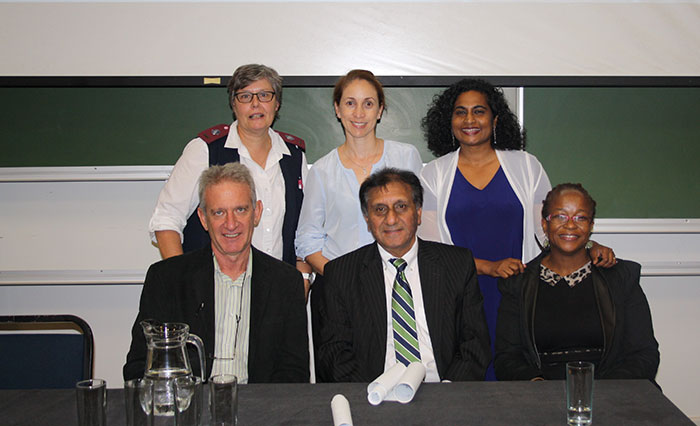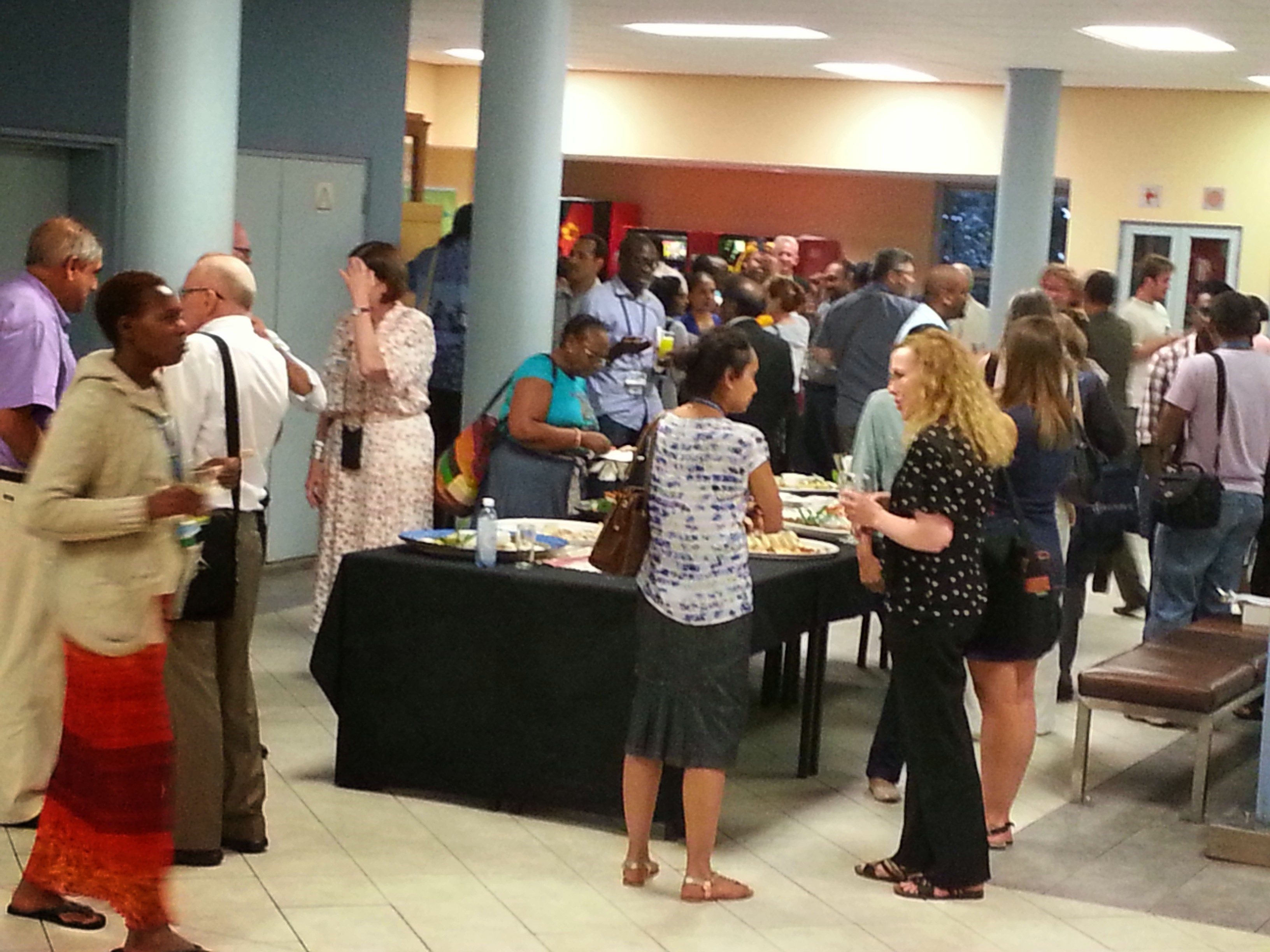World Cancer Day 2015: Not beyond us


The theme for the 2015 World Cancer Day “Not Beyond Us” points to the fact that solutions do exist across the continuum of cancer, and that they are within our reach.
To commemorate World Cancer Day, the Cancer Research Initiative (CRI) hosted a seminar on 3rd February focusing on “Cancer Genetics and Cancer Control”, an area that is sometimes neglected and considered beyond us.
The Dean of the Faculty of Health Sciences, Prof Gregory Hussey opened the seminar by emphasising the Faculty of Health Sciences commitment to an integrated cancer research platform.
Director of the CRI, Professor Jennifer Moodley outlined the history and significance of World Cancer Day 2015. Professor Melvyn Freeman, Chief Director of Non-Communicable Diseases, National Department of Health provided an overview of the National Department of Health plans for the prevention and control of cancer in South Africa. The plan will prioritize cancers that affect the majority of South Africans and seeks ways to implement the most cost-effective, feasible interventions. Prof Freeman highlighted that “cancer is not just a health issue- it’s a development issue” and therefore the next step in the development of a comprehensive plan for prevention must involve a holistic approach with involvement of all governmental and non-governmental sectors.

In photo: Speakers from the seminar hosted by the Cancer Research Initiative to commemorate World Cancer Day. Back (from left to right): Sr Ursula Algar; Dr Tracey Adams; Professor Jennifer Moodley. Front (from left to right): Professor Melvyn Freeman; Professor Raj Ramesar; Dr Tracey Naledi
Professor Raj Ramesar, Division of Human Genetics, Institute of Infectious Disease and Molecular Medicine (IDM), University of Cape Town spoke on the role of genetics in monitoring cases and assessing risk factors for cancer. He highlighted the importance of evaluating hereditary risk factors of cancer in rural South Africa where patients rarely have access to primary health care. By screening communities from the Northern Cape for genetic risk factors of colon cancer, for example, it has emerged that counselling, surveillance and follow-ups that includes many generations of South African families is also required to effectively prevent and control cancers.
Dr Tracey Adams, a consultant gynaecological oncologist (UCT/Groote Schuur Hospital) described the role of genetic testing in ovarian cancer detection, prevention and treatment. Dr Adams is conducting research to determine whether BRCA1/BRCA2 status and molecular pathology characteristics of epithelial ovarian cancers are associated with clinical outcomes of ovarian cancer. Currenlty no data on genetics and ovarian cancer in exists for Africa” and Dr Adams believes work it is “not beyond us” to better understand ovarian cancer and progress towards personalised medicine. Sr Ursula Algar, Groote Schuur Hospital then outlined the story of cancer survivor Tobeka Cungu. Sr Algar presented a patient’s perspective on how genetic screening led her to be diagnosed with colon cancer at age 24 and her road to recovery. Tobeka was able access the treatment and support she required before the disease aggressively spread as a result of genetic screening and counselling. Tobeka’s enduring fight against the disease proves that it is also not beyond us to hope for an improvement in the quality of life for patients diagnosed with cancer.

The seminar also provided an opportunity to discuss the ongoing progress and contributions of genetic research to the early detection, prevention and treatment of cancer. The overall consensus amongst those in attendance was that although there is much to be done, it is within our reach to control and decrease the burden of cancer through a combined effort from all sectors.
Dr Tracey Naledi, Chief Director Health Programmes (Western Cape Department of Health) summarised the seminar proceedings noting that there is much work to be done. South Africa requires healthy people to contribute meaningfully to community life and that cancer prevention costs have 10 times the benefits of treatment. Dr Naledi reiterated that the national cancer plan will need increased investment and commitment from all sectors of government. Dr Naledi went on to acknowledge the importance of screening and surveillance programmes for improving survival, emphasizing the critical importance of a strengthened health systems, a transdisciplinary approach and increased community engagements.
The seminar was well attended by researchers, academics, and cancer advocates from the public and private sectors.
Article by Vedantha Singh, Cancer Research Initiative